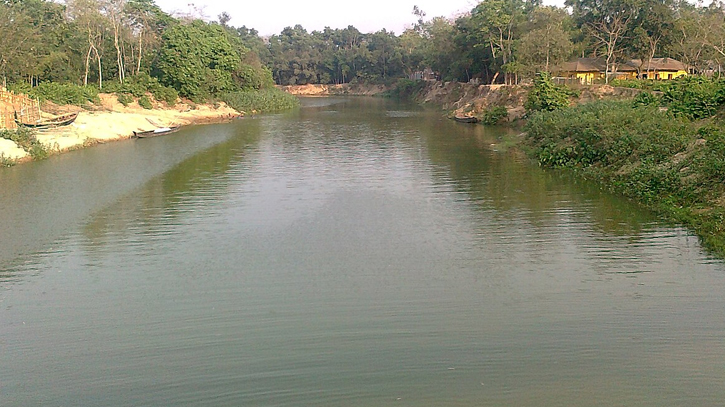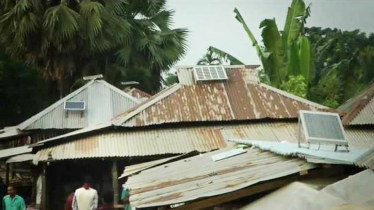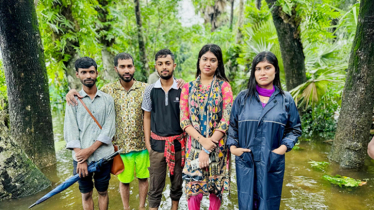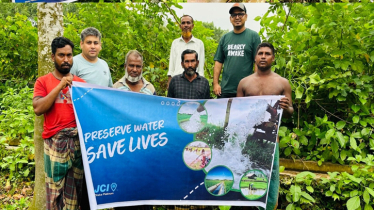
Halda river. Photo: Collected
The Halda River is facing a grave threat as industrial and residential wastes continue to accumulate, compromising the quality of its water. This not only poses a risk to aquatic life but also endangers the lives of parent fishes. The once pristine freshwater river is now on the brink of becoming a polluted waterway, with consistent contamination occurring from multiple sources.
The river, known for being a natural breeding ground for river fishes, has seen a drastic decline in fishing activities. Despite setting thirteen conditions aimed at improving its condition, such as halting the dumping of industrial waste and ceasing activities harmful to aquatic life, these measures have not been implemented.
On the occasion of the International Day of Action for Rivers, inspection on the condition revealed that the Matamuhuri River is also facing increased pollution due to various reasons, driving the river into an increasingly critical condition.
Originating from the Arakan Hills, the Matamuhuri River spans 170 kilometres. Continuously losing its depths, the river is now filled with small chars across its long body, impacting maritime transportation. Without intervention, the river might completely lose its navigability in the coming decades.
The International Day of Action for Rivers, observed annually on March 14th since 1998, aims to raise awareness about the importance of rivers and human responsibility for their protection. The decision to establish this day was made during an international conference in Curitiba, Brazil, in March 1997.
Dr. Md Shafiqul Islam, a Halda researcher, highlights the human-induced disruptions at Halda’s Bangabandhu Fisheries Heritage, endangering the ecology and biodiversity of the river. Market waste, poultry waste, plastic, polythene, and toxic waste in solid and semi-solid forms are still being disposed around the river banks, impacting air quality and contaminating the river's ecosystem During high tides these biological and synthetic materials are getting swept into the river, polluting its ecosystem.
Shafiul Alam, president of the Egg Collectors and Hatchling Farmers Association, notes that while industrial waste has reduced, pollution persists due to poultry farms surrounding the Halda River. The toxic substances used in fishing lead to the death of small fishes and make adult fishes sick.
Discussing the pollution issue, Farhana Lovely, Chattogram District Fisheries Officer, mentions that major pollution in the Halda River has decreased. However, smaller sources of pollution are reported regularly to the district administration, emphasising the need for collaborative efforts with locals and relevant parties to reduce pollution.
The flow of water from the hills to the river is crucial, but dying streams entering the river from the hills threaten Halda River's water retention capacity. Analysts have observed that Sedimentation flowing downstream is depositing on the riverbed, reducing water capacity. Illegal land occupation, deforestation, and stone extraction along the hills alter the river's path, causing erosion during heavy rainfall and water scarcity in dry seasons.
Despite being Asia's only natural freshwater fish breeding ground and declared Bangabandhu Fisheries Heritage in 2020, the Halda River faces challenges. Dam construction, encroachment, and dredging are causing irreparable damage to its biodiversity. Dolphin deaths are on the rise due to propeller strikes, entanglement in fishing gear, and illegal hunting.
Even minor injuries from heavy engine-propelled boats or dredgers for sand extraction can lead to the death of the river dolphins. Dolphins also die from the use of folk medicines like traditional Kabiraji substances or even from fish hooks.
Faisal Ahmed, a river researcher and editor of River Bangla, emphasises the urgency of protecting rivers by addressing critical factors such as continuous water flow, absence of encroachment, and pollution. Any compromise on these three elements jeopardises the health of rivers across Bangladesh.
“On this International Day of Action for Rivers, we hope for the rivers of the country to be free from encroachment and pollution,” Ahmed said.
Messenger/Disha








